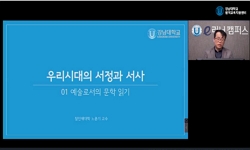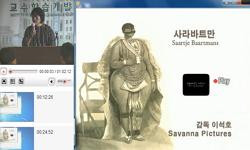최근 도덕교육에서는 인지적 접근의 대안으로서 ‘서사적 접근’이 제시되고 있다. 서사적 접근은 담화, 담론, 이야기 등의 용어와 관계되는데, 인간은 서사적 존재로서 자신의 삶을 서사(...
http://chineseinput.net/에서 pinyin(병음)방식으로 중국어를 변환할 수 있습니다.
변환된 중국어를 복사하여 사용하시면 됩니다.
- 中文 을 입력하시려면 zhongwen을 입력하시고 space를누르시면됩니다.
- 北京 을 입력하시려면 beijing을 입력하시고 space를 누르시면 됩니다.

초등도덕교육 방법으로서 대화일기 쓰기 사례 연구 = Dialogical Narrative as the Method of Moral Education in Elementary School
한글로보기https://www.riss.kr/link?id=A101721140
- 저자
- 발행기관
- 학술지명
- 권호사항
-
발행연도
2015
-
작성언어
Korean
-
주제어
서사적 접근 ; 서사 ; 대화 ; 대화적 서사 ; 대화일기 ; narrative approach ; narrative ; journal ; dialog ; dialogical narrative ; dialogical journal
-
등재정보
KCI등재
-
자료형태
학술저널
-
수록면
197-236(40쪽)
-
KCI 피인용횟수
0
- DOI식별코드
- 제공처
-
0
상세조회 -
0
다운로드
부가정보
국문 초록 (Abstract)
최근 도덕교육에서는 인지적 접근의 대안으로서 ‘서사적 접근’이 제시되고 있다. 서사적 접근은 담화, 담론, 이야기 등의 용어와 관계되는데, 인간은 서사적 존재로서 자신의 삶을 서사(이야기)로 표현하고, 의미 지우며, 구성해 나간다는 관점이다. 즉 인간은 서사를 통해 자신의 삶과 경험을 총체적으로 진술하고 엮어 나가면서 도덕적 삶을 영위해 나간다. 인간의 삶은 서사 속에 녹아 있고, 서사는 삶 속에 녹아 있기 때문에 서사를 활용하는 것은 인간의 삶과 경험은 물론 도덕적 삶도 포괄할 수 있는 방법이 될 수 있다. 그러나 모든 서사가 도덕적인 것은 아니다. 자칫 자신의 서사에만 몰입함으로써 ‘홀로 서사’가 될 수 있기 때문이다. 어떤 서사가 도덕적 서사가 되기 위해서는 나와 나, 나와 너, 나와 세계의 관계 속에서 대화적으로 구성되어야 한다. 이처럼 관계 속에서 소통하면서 구성되는 서사가 ‘대화적 서사’로서 본 연구에서는 서사와 관련한 기존의 연구가 가지고 있는 한계점들을 보완하면서 초등도덕교육방법으로서 대화일기를 제안하고 있다. 대화일기는 홀로 서사를 극복하면서 함께 살아가는 이야기로서 초등도덕교육의 방법이 될 수 있다. 사례 연구의 결과 초등학생들은 대화일기를 쓰면서 자기 삶의 주인으로 주체적으로 살아간다는 것이 드러났다. 또한, 자신의 삶을 성찰하며 자신의 지식과 삶을 대화적으로 구성하고 삶과 도덕수업이 통합되었다. 뿐만 아니라 아동들의 관심 영역이 자기 자신을 넘어 나-너, 나-세계로 확장되었다. 따라서 대화일기는 초등도덕교육의 목적을 실효성 있게 달성할 수 있는 방법이 될 수 있다.
다국어 초록 (Multilingual Abstract)
The purpose of this present study is to offer alternative approach in place of cognitive approach in moral education of elementary school. Cognitive approach in moral education of elementary school emphasizes moral knowledge, moral reasoning, and so o...
The purpose of this present study is to offer alternative approach in place of cognitive approach in moral education of elementary school. Cognitive approach in moral education of elementary school emphasizes moral knowledge, moral reasoning, and so on. It succeeded in teaching moral knowledge, moral reasoning. However, it also has produced many issues in teaching and learning the subject of moral education. For example, to many student of elementary school, living in their life is one thing and learning in the school is another. Actually, living in their life and learning in the school are not separated. In other word, knowledge and practice can not be separated. This study suggests some proposal in moral education of elementary school. This study consider some essential methods in moral education of elementary school, namely, narrative approach in moral education of elementary school. Narrative approach in moral education of elementary school can connect knowledge and practices. Cognition, emotion, and behavior in narrative move together. Human beings live in their narrative. Narrative is the style of life. In narrative, human beings construct their lives and make the meaning of their lives. But all narratives are not ethical or moral. Dialogical narrative is ethical and moral. Dialogical narrative is to construct one`s narrative together. To make dialogical narrative is open to the other person and evaluation. In dialogical narrative, students are active and conative. Positively, they have activity and learn in dialogical narrative. This study showed that dialogical narrative is suitable for alternative approach in moral education of elementary school. dialogical narrative give meaning to students, teachers, and parents as follows. To students: First, the students of elementary school conform their lives proactively as the lord of their lives. Second, the students of elementary school are reflective beings. Third, the students of elementary school understand the others through investigation and inquiry. Fourth, the solution of moral problems is based on moral imaginative power and creativity. To teachers: First, all teacher ought to understand their students through taking down prejudice about their students. Second, teachers and students make their lives together. Third, teachers ought to believe in their students and trust them.
참고문헌 (Reference)
1 이연수, "초등학교 도덕교육 방법으로서 대화적 서사" 영남대학교 대학원 2014
2 박세원, "존재의 성장과 교육: 과학 기술사회를 살아갈 아동을 위한 실존주의 도덕교육" 교육과학사 2009
3 Heidegger, M, "존재와 시간" 동서문화사 2010
4 김호정, "저널쓰기를 활용한 초등학생의 도덕성 발달 향상 방안 : 자아존중감과 자아정체감 중심으로" 경인교육대학교 교육대학원 2009
5 배점희, "자아성찰적 삶쓰기를 통한 초등학생 자아개념 형성에 관한 연구" 대구교육대학교 교육대학원 2009
6 신지수, "자아 성찰적 글쓰기가 여중학생의 자아개념과 성격유형에 미치는 영향" 건국대학교 2006
7 김영숙, "자기 성찰적 도덕일기 쓰기를 통한 도덕과 교육의 실효성 제고" 대구교육대학교 교육대학원 2006
8 박세원, "이해의 선물" 교육과학사 2013
9 Paul Ricoeur, "시간과 이야기 1" 문학과 지성사 1999
10 노양진, "도덕적 상상력: 체험주의 윤리학의 새로운 도전" 서광사 2008
1 이연수, "초등학교 도덕교육 방법으로서 대화적 서사" 영남대학교 대학원 2014
2 박세원, "존재의 성장과 교육: 과학 기술사회를 살아갈 아동을 위한 실존주의 도덕교육" 교육과학사 2009
3 Heidegger, M, "존재와 시간" 동서문화사 2010
4 김호정, "저널쓰기를 활용한 초등학생의 도덕성 발달 향상 방안 : 자아존중감과 자아정체감 중심으로" 경인교육대학교 교육대학원 2009
5 배점희, "자아성찰적 삶쓰기를 통한 초등학생 자아개념 형성에 관한 연구" 대구교육대학교 교육대학원 2009
6 신지수, "자아 성찰적 글쓰기가 여중학생의 자아개념과 성격유형에 미치는 영향" 건국대학교 2006
7 김영숙, "자기 성찰적 도덕일기 쓰기를 통한 도덕과 교육의 실효성 제고" 대구교육대학교 교육대학원 2006
8 박세원, "이해의 선물" 교육과학사 2013
9 Paul Ricoeur, "시간과 이야기 1" 문학과 지성사 1999
10 노양진, "도덕적 상상력: 체험주의 윤리학의 새로운 도전" 서광사 2008
11 김지희, "도덕일기쓰기를 통한 도덕과 수업 개선 방안" 대구교육대학교 교육대학원 2009
12 예정민, "도덕교육의 서사적 접근에 관한 연구" 부산대학교 대학원 2005
13 MacIntyre, A., "덕의 상실" 문예출판사 1987
14 강선보, "대화와 교육 : 이론과 실천" 교육과학사 2011
15 박주희, "대화 저널쓰기 경험에 관한 내러티브 탐구 : 교사와 아동의 대화적 만남을 통한 관계 형성과 자아 구성 이야기" 대구교육대학교 교육대학원 2008
16 이연수, "대학생용 관계성(RS) 검사 개발 및 타당화" 한국윤리교육학회 (34) : 383-404, 2014
17 고미숙, "대안적 도덕교육" 교육과학사 2005
18 엄명자, "내러티브에 基盤한 初等學校 道德科 敎育課程 開發" 경북대학교 2013
19 Schneider, "나와 너" 문예출판사 2001
20 조명숙, "긍정적 과거쓰기가 자아존중감에 미치는 영향 연구" 상명대학교 복지상담대학원 2010
21 이오덕, "글쓰기 어떻게 가르칠까" 보리 2002
22 조숙희, "글쓰기 발표지도가 중학생의 자아 존준감 및 자기표현에 미치는 효과" 전남대학교 교육대학원 2003
23 Paul Ricoeur, "Temps et Tecit I, Seuil Paris" 1938
24 Tappan, Mark B., "Stories Told and Lessons Learned" 59 (59): 182-205, 1989
25 Martin Buber, "Ich und Du" Verlag Lambert 1954
26 Nicholas C. Burbules, "Dialogue in Teaching: Theory and Practice" Teachers College Press Columbia University 1993
동일학술지(권/호) 다른 논문
-
2009년 개정도덕과교육과정에 따른 초등 도덕과 교사용지도서 내용 중 “도덕적 감정,정서”관련 기술에 대한 분석 및 비판
- 한국초등도덕교육학회
- 고대만 ( Dae Man Ko )
- 2015
- KCI등재
-
- 한국초등도덕교육학회
- 곽영근 ( Young Kuen Kwak )
- 2015
- KCI등재
-
- 한국초등도덕교육학회
- 김태훈 ( Tae Hoon Kim )
- 2015
- KCI등재
-
선한 삶에서의 자기-지식과 지식의 중요성 그리고 자기-지식과 관조적 활동의 우정과의 연관성에 관한 아리스토텔레스의 관점
- 한국초등도덕교육학회
- 박재주 ( Jea Joo Park )
- 2015
- KCI등재
분석정보
인용정보 인용지수 설명보기
학술지 이력
| 연월일 | 이력구분 | 이력상세 | 등재구분 |
|---|---|---|---|
| 2026 | 평가예정 | 재인증평가 신청대상 (재인증) | |
| 2020-01-01 | 평가 | 등재학술지 유지 (재인증) |  |
| 2017-01-01 | 평가 | 등재학술지 유지 (계속평가) |  |
| 2013-01-01 | 평가 | 등재 1차 FAIL (등재유지) |  |
| 2010-01-01 | 평가 | 등재학술지 선정 (등재후보2차) |  |
| 2009-01-01 | 평가 | 등재후보 1차 PASS (등재후보1차) |  |
| 2008-01-01 | 평가 | 등재후보학술지 유지 (등재후보2차) |  |
| 2007-01-01 | 평가 | 등재후보 1차 PASS (등재후보1차) |  |
| 2005-01-01 | 평가 | 등재후보학술지 선정 (신규평가) |  |
학술지 인용정보
| 기준연도 | WOS-KCI 통합IF(2년) | KCIF(2년) | KCIF(3년) |
|---|---|---|---|
| 2016 | 1.08 | 1.08 | 1.04 |
| KCIF(4년) | KCIF(5년) | 중심성지수(3년) | 즉시성지수 |
| 0.97 | 0.89 | 1.393 | 0.34 |




 KCI
KCI KISS
KISS






